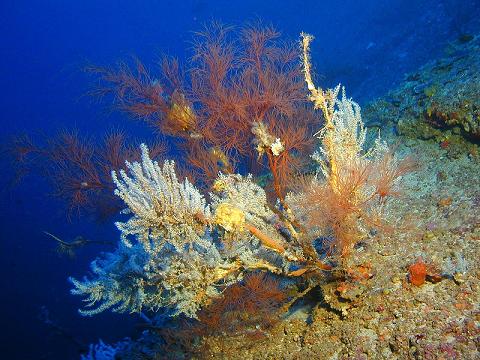Hawaii Pacific University | Oceanography
Oceanography is the interdisciplinary study of the global oceans -- from shallow coastal areas to the deepest ocean trenches, from the tropics to the polar seas. It is usually divided into four sub-disciplines:
- Physical Oceanography – the study of waves, currents, tides, and ocean energy.
- Geological Oceanography – the study of the sediments, rocks, and structure of the seafloor and coastal margins.
- Chemical Oceanography – the study of the composition and properties of seawater and how it is affected by physical mixing processes and interactions with the seafloor, the atmosphere, and ocean life.
- Biological Oceanography – the study of marine organisms and their interactions with the ocean environment.
All of these sub-disciplines are highly interrelated, as well as being closely aligned to other fields such as meteorology/atmospheric science, geophysics, and ocean engineering. As you might expect, biological oceanography shares many aspects with marine biology, but is generally more focused on the interactions of specific parameters within the marine environment -- paying particular attention to the affects of chemical, physical, or geographic properties of the ocean -- and marine organism distribution and/or the patterns of biological populations in the sea. HPU’s oceanography program includes all of the sub-disciplines of oceanography.
- Our dedicated marine science faculty’s expertise covers a broad range of disciplines, producing a well-rounded experience for our students.
- HPU’s small class sizes foster constructive interactions between faculty and students, and guarantee individualized attention.
- In addition to a rigorous classroom education, our marine science programs emphasize hands-on learning in laboratory and field courses throughout the degree curriculum.
- Our location in the center of the world’s largest ocean makes this the perfect place to study marine biology and oceanography!
- Even as an undergraduate, you’ll have the chance to explore and deploy sampling gear throughout Hawaii‘i’s coastal and nearshore ocean environments aboard our 42-foot research vessel, Kaholo, in addition to learning scientific observation and analyses techniques in our laboratories at the Hawaii‘i Loa campus and Oceanic Institute.
- Students who graduate from our program leave with an in-depth knowledge of marine science and real-world skills for success in their future endeavors.
Students majoring in Oceanography will:
- Understand fundamental principles in the biological and the physical sciences.
- Integrate scientific principles from chemistry, physics, geology, and biology to explain processes in the marine environment.
- Plan and implement observational and experimental studies of marine systems and analyze the data obtained from these studies using appropriate mathematical and statistical techniques.
- Communicate scientific ideas effectively in written and oral formats using appropriate computer applications for data analysis and presentation.
- Find and evaluate published information from a variety of printed and electronic sources.
- Use an interdisciplinary perspective to analyze complex problems and develop relevant questions pertaining to marine systems.
You may find specific requirements for undergraduate admissions here.
WHAT CAN YOU DO WITH AN OCEANOGRAPHY DEGREE?
An undergraduate degree in Oceanography from HPU is extremely versatile; we provide you with a strong academic foundation in the physical and biological sciences, including additional preparation in understanding marine systems. In particular, our B.S. in oceanography will prepare you for an entry-level marine/aquatic science position in a government agency helping to establish marine policy or performing fisheries management; in a research setting as a field or data technician; or in a non-profit or education setting, to name a few.


